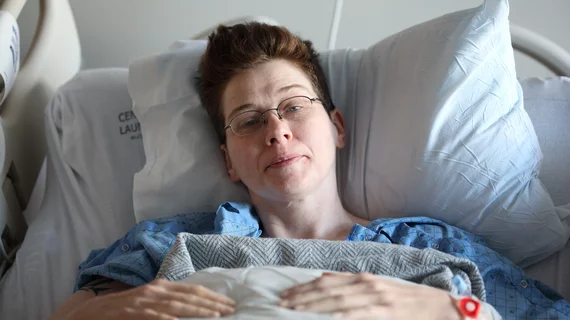What we know about COVID-19 and cardiogenic shock
Twelve percent of patients hospitalized for COVID-19 develop shock, according to new data from a research letter published in Circulation: Heart Failure. While cardiogenic shock (CS) makes up a small fraction of those cases, it is still a serious complication that can result in worse patient outcomes.
Researchers set out to learn more about COVID-related CS, exploring the American Heart Association COVID-19 Cardiovascular Disease Registry. All data and materials were from the American Heart Association Precision Medicine Platform.
The analysis included 15,208 COVID-19 admissions at 104 different hospitals between Jan. 14, 2020, and Sept. 20, 2020. Thirty-six percent of patients were women, and the median patient age was 64 years old.
Overall, 12% of COVID-19 patients developed shock. While CS was seen in 0.7% of COVID-19 patients, mixed shock (MS) was seen in 1%, distributive shock (DS) was seen in 9% and "other shock" was reported in another 1%.
Excluding 13,540 patients who had preexisting heart failure, the authors added, the prevalence of shock and shock subtypes was comparable with the overall group.
Patients with CS were predominantly male and non-white. Also, they were more likely to have a history of prior MI, coronary revascularization or heart failure.
In addition, patients with CS had higher rates of abnormal chest imaging and troponin, d-dimer, C-reactive protein, and natriuretic peptide elevations at admission compared with the patients who did not develop shock.
Also, when focusing on patients where echocardiography was obtained at admission, 28% of CS patients had left ventricular ejection fraction less than 30%. That number was just 6% among patients who did not develop shock.
The authors emphasized that the mortality rate for the overall cohort was 16%.
Sixty-three percent of patients with CS died during hospitalization, compared with 57% with DS and 10.3% without shock.
Meanwhile, even though respiratory failure remained the most common cause of death in all patients, cardiovascular causes were more widespread in patients with CS compared with those with DS or no shock.
The authors also noted that the composite of in-hospital mortality, cardiac arrest, MI, or stroke was observed in 77% of CS patients, 64% of DS patients and 13% of patients who did not develop shock.
In a secondary analysis, patients with MS had similar baseline characteristics, clinical presentation, and event rates as patients with classic CS. However, they were less inclined to have coronary angiography or receive mechanical circulatory support.
Despite this high incidence of cardiovascular risk factors and cardiovascular disease in patients with CS or MS, just 20% had acute MI during hospitalization.
“This is consistent with growing evidence implicating mechanisms of cardiac involvement in COVID-19 beyond acute coronary syndromes, including stress-induced cardiomyopathy, inflammatory myocarditis, microvascular dysfunction and thrombosis, and decompensation of underlying heart failure,” wrote lead author, Anubodh S. Varshney, MD, of Brigham and Women’s Hospital and Harvard Medical School, and colleagues. “Notably, coronary angiography, percutaneous coronary intervention, and temporary mechanical circulatory support placement were utilized in less than 10% of cases of CS or MS, reflecting rates that are substantially lower than in contemporary non-COVID-19 CS populations.”
Read the full study here.
Related COVID-19 Content:
Myocarditis, arrhythmias and more: An ACC update on what cardiologists know about long COVID-19
Athletes with COVID-19 may require heart MRI screening for myocarditis, new data suggest
4 cardiac arrhythmias associated with COVID-19
What we know about COVID-19 and cardiogenic shock
Mild COVID-19 infections not associated with long-term risk of heart damage
The pandemic’s toll: 55 long-term side effects of COVID-19
4 key takeaways from an updated look at vaccine-related myocarditis in the U.S.
Most young people with vaccine-related myocarditis recover quickly
Intrathoracic complications in COVID patients: Incidence, associations and outcomes
Congenital heart disease increases risk of poor COVID-19 outcomes, including death
MRI scans show COVID's 'significant' impact on the brain
Heart complication seen for the first time in a young patient after COVID-19 vaccination
American Heart Association investing $10 million to study the long-term consequences of COVID-19
Cardiologist discusses COVID-19, myocarditis among professional athletes and more
Not so fast: Specialists warn against cardiac imaging for asymptomatic COVID-19 patients
Study shows COVID-19 can infect heart cells—and do serious damage in the process
